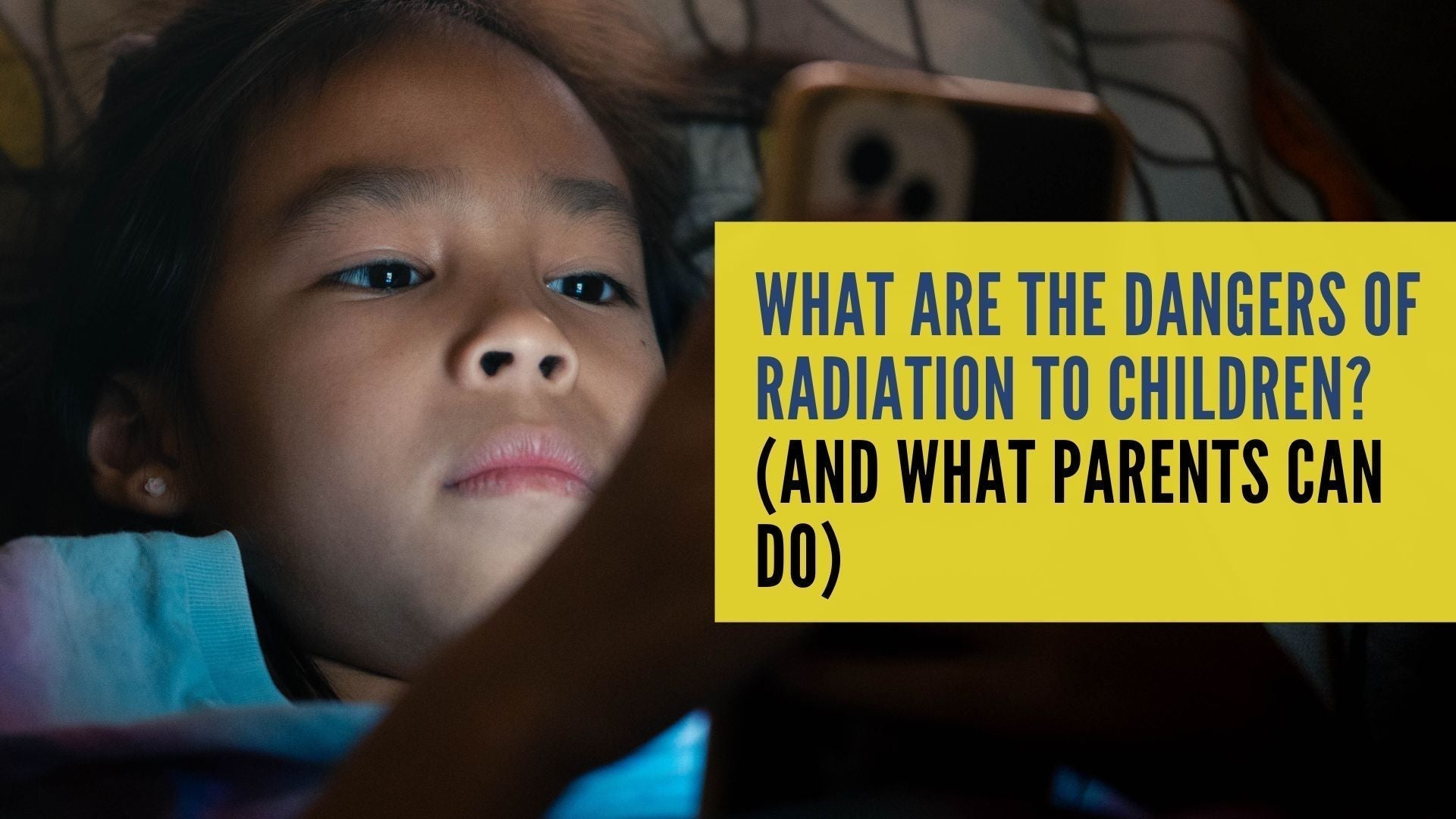In today’s digital age, video games and screen time have become a significant part of children's lives. While gaming can offer entertainment and even educational benefits, excessive screen time can lead to various negative outcomes, including poor academic performance, disrupted sleep patterns, and reduced interest in other activities.
As a parent, finding a healthy balance is essential for your child's overall well-being. Here are some practical strategies to help manage and reduce their gaming time:
1. Set Clear and Consistent Limits
Establishing Rules: One of the most effective ways to control gaming time is by setting clear, consistent rules. The American Academy of Pediatrics (AAP) suggests limiting screen time to 30-60 minutes per day on school days and no more than two hours on non-school days for children over the age of six. For younger children, the AAP recommends even lower limits, under one hour of total screen time per day.
Consequences for Breaking Rules: It's important to enforce these rules consistently. If your child exceeds their gaming time, the consequences should be immediate and reasonable. For instance, you might impose a complete gaming ban for several days as a consequence. The key is to follow through every time, which helps your child understand the importance of adhering to the set limits.
2. Encourage Alternative Activities

Promote Physical Activities: Encourage your child to engage in physical activities such as sports, biking, or dancing. Physical exercise not only offers health benefits but also serves as a fun and engaging alternative to screen time. Additionally, participating in sports or group activities helps develop teamwork and social skills.
Support Hobbies and Interests: Help your child explore new hobbies like reading, drawing, or playing a musical instrument. These activities stimulate creativity and critical thinking, providing long-term benefits beyond what video games can offer. Encouraging your child to pursue their interests will naturally reduce their inclination to spend excessive time on screens.
Organize Playdates: Arranging in-person playdates with friends or family can significantly reduce the time your child spends gaming. Social interactions outside the digital world are crucial for developing communication skills and building strong relationships.
3. Create a Balanced Daily Schedule
Develop a Routine: A structured daily routine that includes a mix of activities like schoolwork, chores, outdoor play, and limited leisure time can help prevent gaming from becoming the primary focus of your child’s day. A balanced schedule teaches time management skills and ensures your child engages in a variety of experiences.
Screen-Free Times and Zones: Designate specific times or areas in the home as screen-free zones, such as during meals or before bedtime. This not only reduces screen time but also encourages face-to-face interaction and fosters a healthier lifestyle.
4. Understand the Role of RF Radiation
Be Aware of Health Risks: It's important to recognize that many devices children use, such as phones and laptops, emit radiofrequency (RF) radiation. Research shows that children absorb 2 to 10 times more radiation than adults due to their developing bodies and thinner skulls. Prolonged exposure to RF radiation has been linked to potential health risks, including impacts on brain development.
Recent studies have explored the potential correlations between increased screen time and developmental delays in communication and problem-solving skills. One study involving 7,097 sets of mothers and their children found an association between more screen time for one-year-olds and later developmental delays. Additionally, data from 2018 revealed that children spending two hours or more a day in front of screens scored lower on language and thinking tests. Extreme cases, where children had seven or more hours of screen time, were linked to thinner brain cortexes, impacting critical thinking and reasoning abilities essential for learning.
Minimize Exposure: To protect your children from RF radiation, consider using Radia Smart® products like shielding blankets,EMF protection beanies,EMF protection children’s ponchos and EMF protection singlets. These products are designed to reduce exposure to harmful radiation, helping to safeguard your child’s health while they use technology.

My kid wearing Radia Smart®’s Kid Hood Poncho

Our kids staying protected from EMF radiation with Radia Smart®’s Poncho
5. Be a Role Model and Lead by Example
Balanced Screen Time: Children often mimic the behavior of the adults around them. By demonstrating balanced screen time habits and prioritizing other activities, you set a positive example for your child. Show them that life beyond the screen is full of exciting possibilities.
Engage in Shared Activities: Spend quality time together doing non-screen activities like family board games, outdoor adventures, or cooking. These shared experiences reduce screen time and strengthen family bonds.
6. Educate Your Child About Gaming and Its Consequences

Discuss the Impact of Excessive Gaming: Talk to your child about the potential negative effects of excessive gaming, such as poor physical health, disrupted sleep, and social isolation. Help them understand how too much screen time can lead to issues like poor posture, eye strain, and difficulty sleeping.
Highlight the Benefits of Other Activities: Emphasize the benefits of non-screen activities, such as how physical play improves health, reading stimulates the imagination, and creative hobbies can lead to new skills and talents.
7. Use Positive Reinforcement and Rewards
Incentivize Non-Gaming Activities: Offer rewards for engaging in non-gaming activities. These incentives can be tangible, such as extra playtime with friends or a special treat, or intangible, like verbal praise and encouragement. Positive reinforcement helps your child associate non-gaming activities with rewards, making them more appealing.
Gaming as a Privilege: Make it clear that gaming is a privilege that must be earned by completing responsibilities like homework and chores. This approach teaches your child that leisure time is something to be earned and balanced with other important activities.
8. Monitor and Approve the Games Your Child Plays
Know the Content: As a parent, it’s crucial to know which games your child is playing and ensure they are age-appropriate. Avoid games with graphic violence or sexual content, and set clear guidelines about the types of games allowed in your home.
Regularly Review Gaming History: Periodically review the web history on your child’s devices to stay informed about the games they are playing and their online activities. This oversight is especially important as it allows you to step in if your child is engaging with content that is not suitable.
9. Set Video Game-Free Days

Designate Screen-Free Days: Incorporate video game-free days into your child’s weekly schedule. These days can be dedicated to other activities like family outings, hobbies, or physical exercise. Having regular breaks from gaming helps your child explore other interests and prevents gaming from becoming an overwhelming part of their life.
Replace Gaming with Fun Alternatives: Help your child find non-gaming activities they truly enjoy. When your child is having fun doing something else, they’ll naturally spend less time on video games. This approach also strengthens your relationship with your child, especially if you participate in these activities together.
10. Seek Professional Advice If Needed
Consult Experts: If you find it difficult to manage your child’s gaming habits despite trying various strategies, consider seeking advice from a child psychologist or counselor. Professionals can offer tailored strategies to help manage your child’s gaming time effectively and address any underlying issues.
Conclusion
Most kids today play video games, and for many, it’s just one of many activities they enjoy. However, when gaming becomes excessive, it can interfere with their academic performance, social life, and overall well-being.
By setting clear limits, encouraging alternative activities, being a positive role model, and understanding the potential health risks associated with excessive screen time and RF (Radio Frequency) radiation, you can reduce your RF concern with Radia Smart®’s EMF protection blankets and apparel. You can guide your child toward a more balanced and healthy lifestyle. Implementing these strategies gradually and consistently can help your child develop a healthier relationship with gaming and encourage them to engage in a variety of enriching activities beyond the screen.
https://www.additudemag.com/how-can-we-wean-our-child-off-video-games/
https://radiasmart.com/blogs/latest-blog/balancing-screen-time-and-emf-exposure-for-childrens-health


